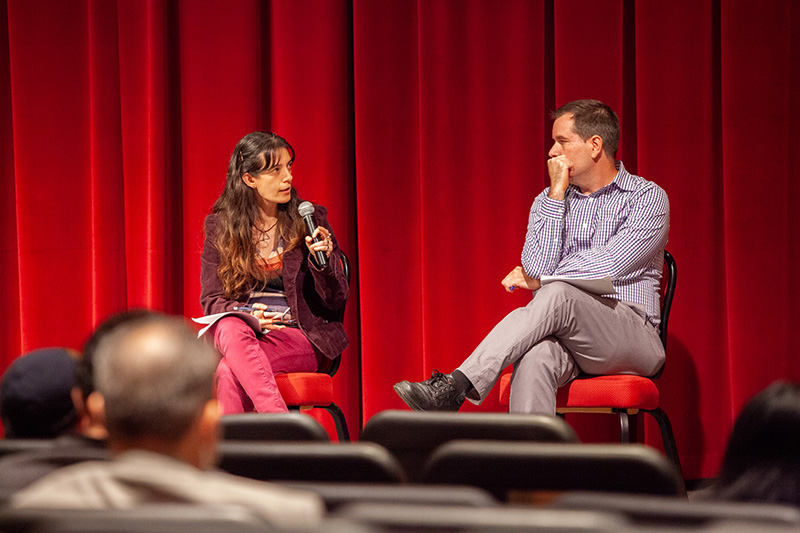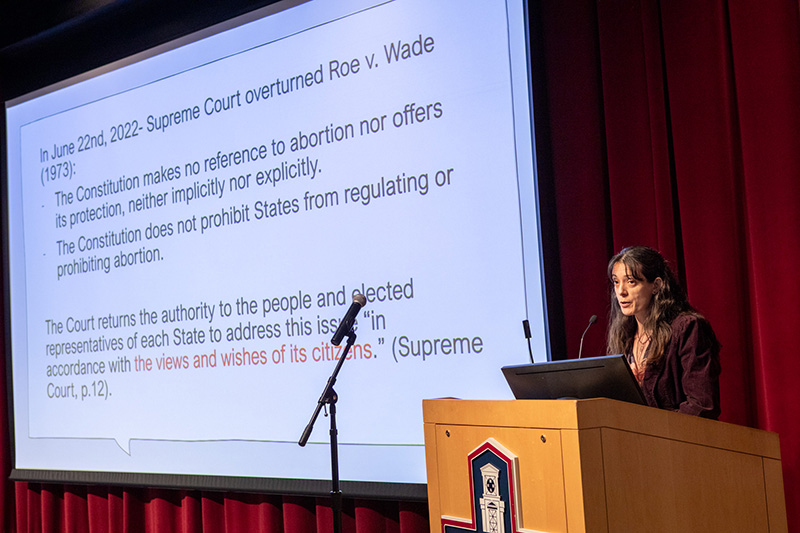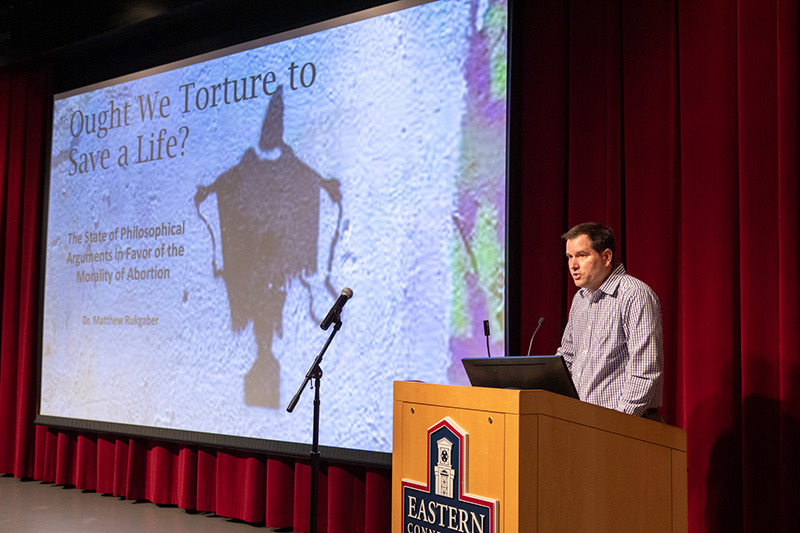- Apply
- Visit
- Request Info
- Give
Philosophy panel examines right to abortion
Written by Noel Teter
Published on November 09, 2022
Two philosophy faculty members examined perspectives on the right to abortion in a panel discussion on Nov. 7. Professor Ana Funes-Maderey and Lecturer Matthew Rukgaber each presented a different perspective on why abortion should be legal. The event was presented by the Philosophy Program in partnership with the Human Rights and Philosophy Clubs.
Rukgaber presented a philosophical perspective with a slide show titled, “Ought We Torture to Save a Life? State of Philosophical Arguments in Favor of the Morality of Abortion.” His perspective was based largely on Judith Jarvis Thomson’s idea that the right to life is not the right not to be killed, but the right not to be killed unjustly.
Rukgaber conceded that the expansion of personhood in law and ethics may lead to fetal personhood. However, he argued that forced birth can be described as a form of torture and that torturing someone is morally worse than withholding the charity needed to save someone’s life — in this case, that of the fetus.
Funes-Maderey focused her presentation on why people should want the right to abortion. This perspective stated that democracy requires the recognition of the sexuate nature of subjects and the establishment of sexuate rights. Furthermore, she said that real equality requires the right to abortion.
Funes-Maderey explained that sexuate difference means recognizing that there are at least two natural ways of experiencing the world, based on the male and female perspective. A sexuate right, she explained, recognizes the difference between subjectivities along these lines, making the right to abortion a sexuate right.





